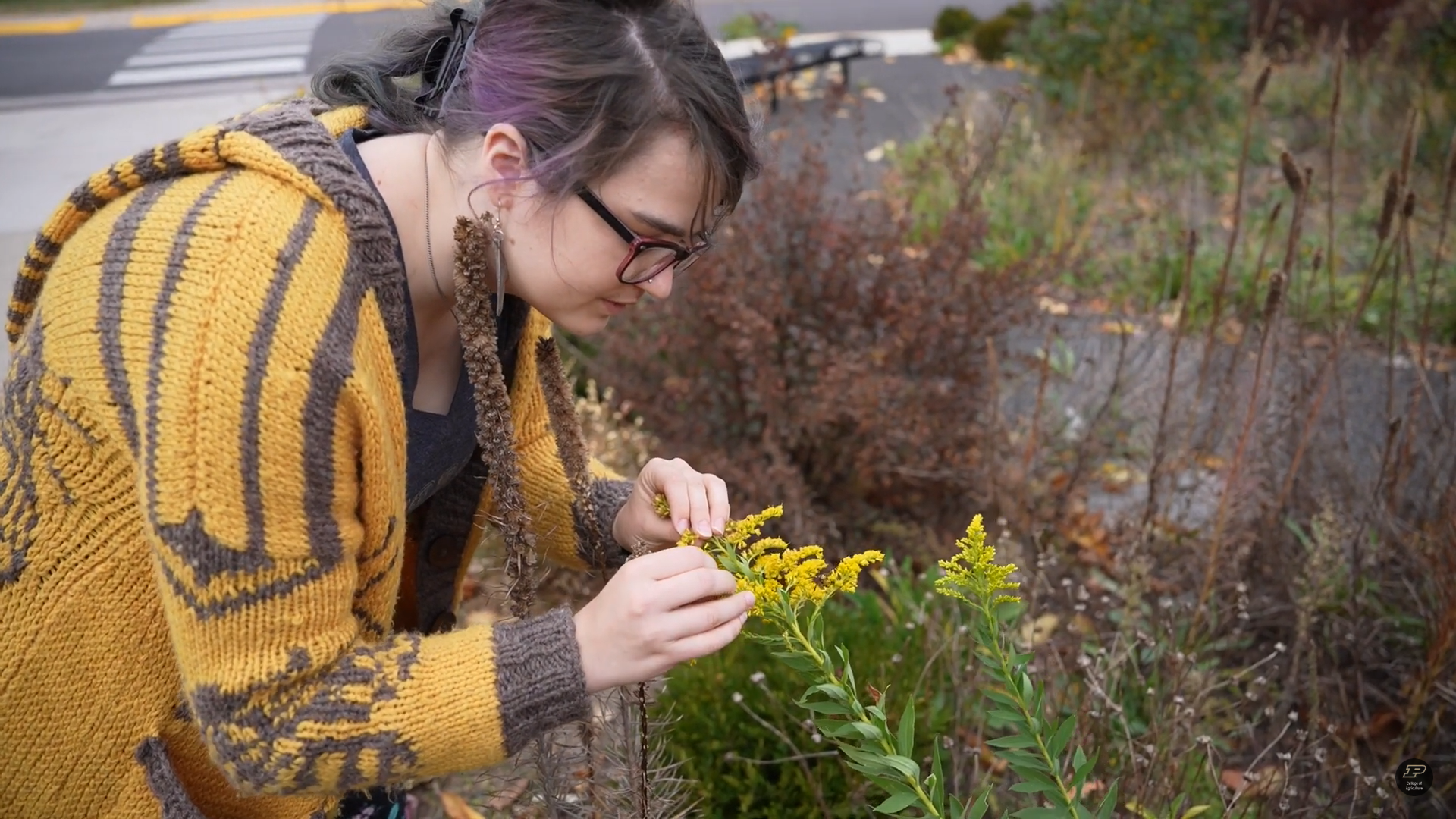Brock Harpur
Associate Professor
Email: bharpur@purdue.edu
other lab images: https://beemolevo.com/egotrips
he/him
Krispn Given
Senior Apiculture Specialist
Email: kgiven@purdue.edu
he/him
Krispn Given is the Senior Apiculture Specialist and manages the Purdue Honey Bee Breeding Program. An international expert in instrumental insemination and honey bee breeding, he is most renowned for developing the “Indiana Mite-biter” strain. Krispn leads Purdue’s world-class extension efforts, training hundreds of students and researchers annually in advanced apiculture. He was the 2023 recipient of the EAS Roger A. Morse Outstanding Teaching Award, reflecting his status as a cornerstone of the department!
Riley Shultz
PhD Student
she/her
Haldane proposed that males are worse at protecting their germline than females. My work investigates the origin and function of mutations in honey bee males. Honey bee males (drones) are hapoloid and express any mutation they inherit or acquire. My work explores how and if drones protect themselves from mutations and if they really are ‘faulty’ as Haldane predicted.
Stephanie Hathaway
PhD Student
she/her
I am untangling the role of the major royal jelly proteins in the honey bee brain. Their role and foci of expression remain elusive. I am exploring the role these genes play and phenotypes associated with them using a combination of biochemical, histological, and neuroethological techniques across model and non-model systems.
Jonathan Nixon
PhD Student
he/him
Izaak Gilchrist
PhD Student
Ravelry: SugarySnail
Website
she/her ; he/him
My research focuses on behavior and communication between honey bee workers and drones. Unlike workers, drones are commonly allowed entry into non-natal colonies despite presenting a significant drain on resources. I'm interested in picking out the factors that affect when and why workers accept foreign drones, why this drifting occurs, and how this affects colony health.
Dylan Ryals
PhD Student
any
My project focuses on honey bee genetics and breeding. In particular, I am studying how genetic diversity plays a role in bee fitness at the individual, colony, and population level—and how we can use that information to improve breeding programs. After starting as a backyard beekeeper, I worked in the commercial pollination and queen rearing industries before becoming a researcher. I plan to continue bee breeding after graduating.
Mulusew Fikere
Postdoctoral Fellow
Twitter: @MulusewFikere
he/him
My project centers around integrating phenotype and genomic information to enhance genomic selection in bees through empirical and simulation datasets. Specifically, my work involves comparing various models for fitting individual and colony-level attributes within the framework of pedigree-based models (PBLUP), genome-based models (GBLUP), and combined pedigree and single-step models (ssGBLUP). As a part of this project, one of our key deliverables will be optimised bee breeding scheme, a pipeline that enables our stakeholders and bee breeders to make informed decisions in selecting the best-performing individuals and colonies using genomic breeding values.
Care to join us?
We’re always looking to work with great researchers at any stage of their career. If you’re interested in working with us as an undergraduate, graduate, or post-doc don’t hesitate to contact Dr. Harpur.
Lab Alumni
Benjamin Taylor - Post-doc (2021-2025)
W. Cameron Jasper - Post-doc (2022-2024)
Gillian Lane - MS Student (2024)
Mathew Dittmann - PhD Student (2020-2023) Presently: Post-doc California State University, Fresno
Garett Slater - PhD Student (2019-2022) Presently: Assistant Professor Texas A&M
Madeline Carpenter - MS Student (2019-2022) Presently: PhD Student University Vermont
Austin Carey - Research Assistant (2019-2021)
Dayne Hill - Capstone Student (2019-2020)
Savanna Ploessl - Research Assistant (2020-2021)
Anna Donnelly - Research Assistant (2021-2022)
Amos Buschkoetter - Research Assistant (2022-2025)
Amara Brenton - Research Assistant (2025-2026)








